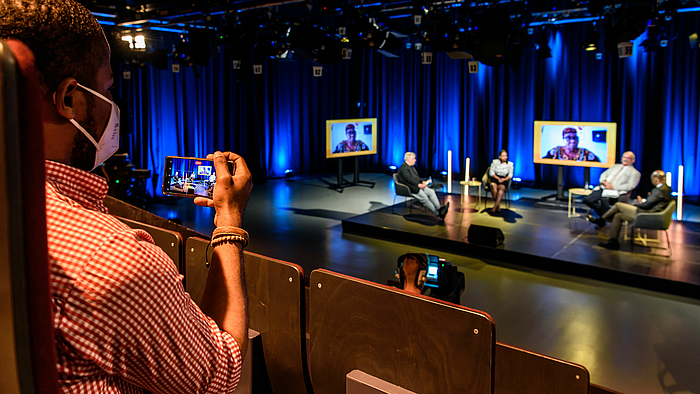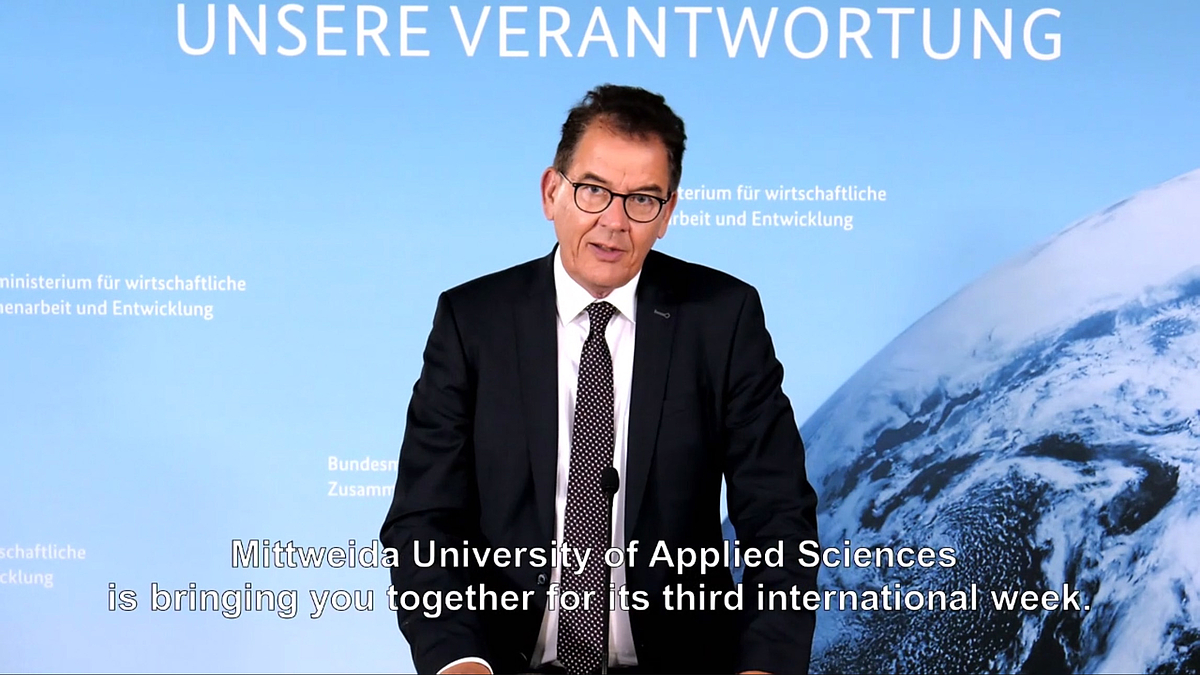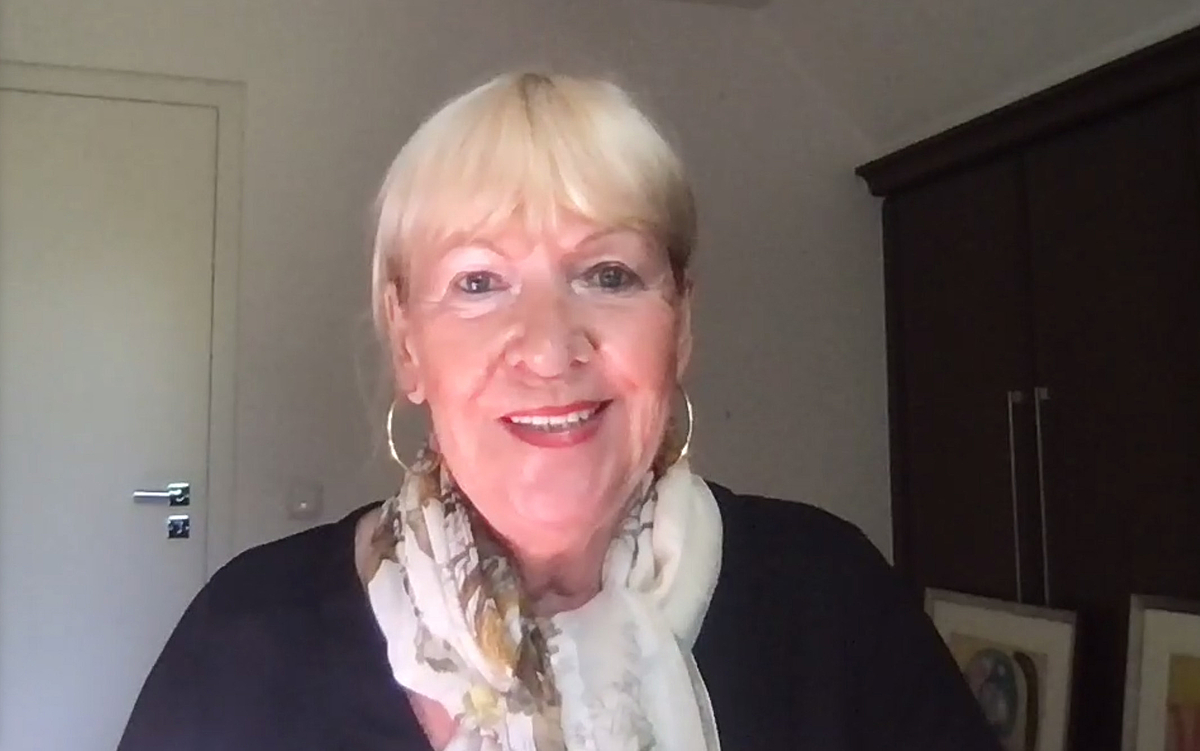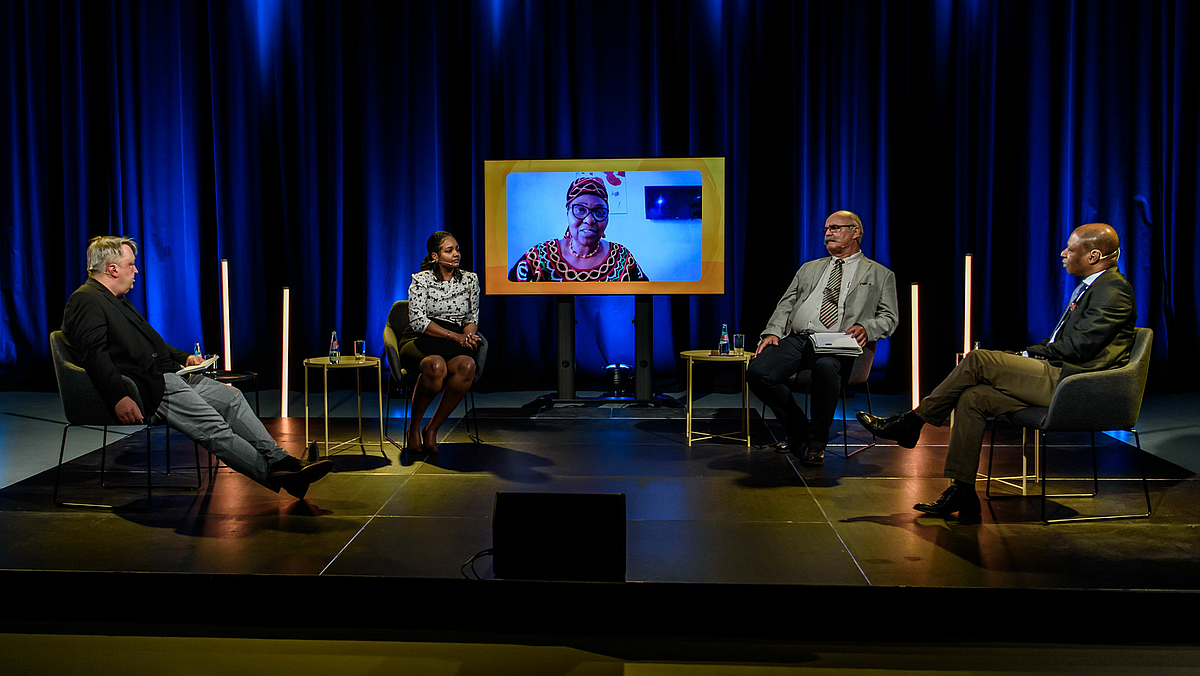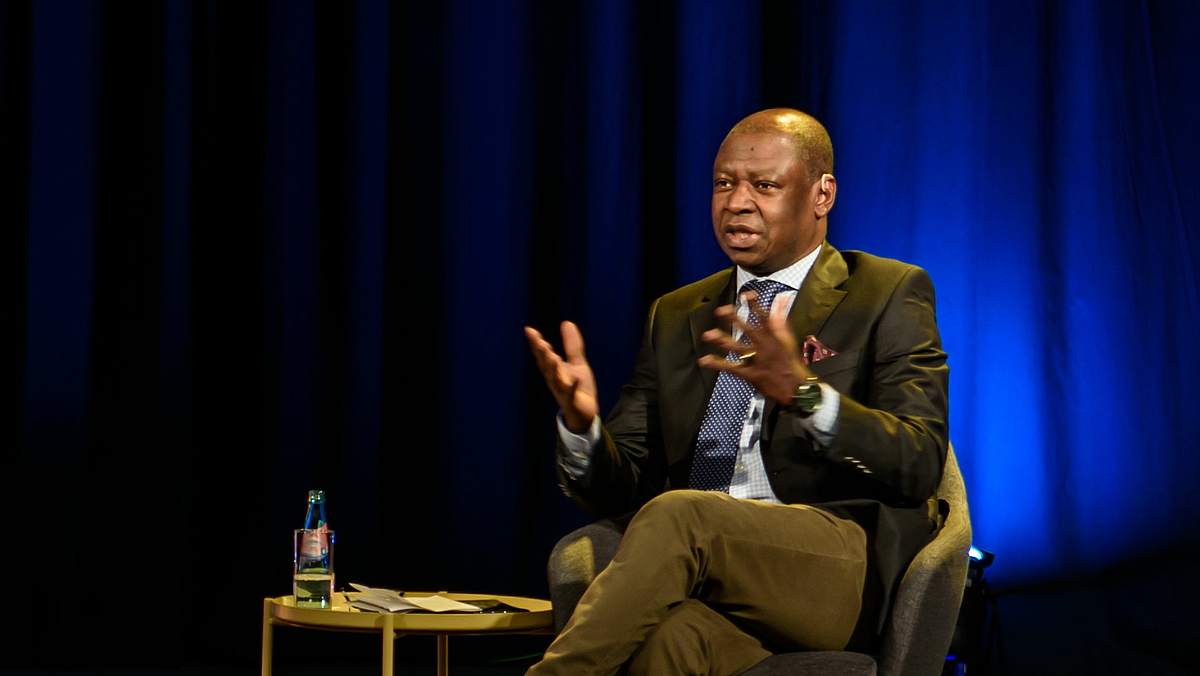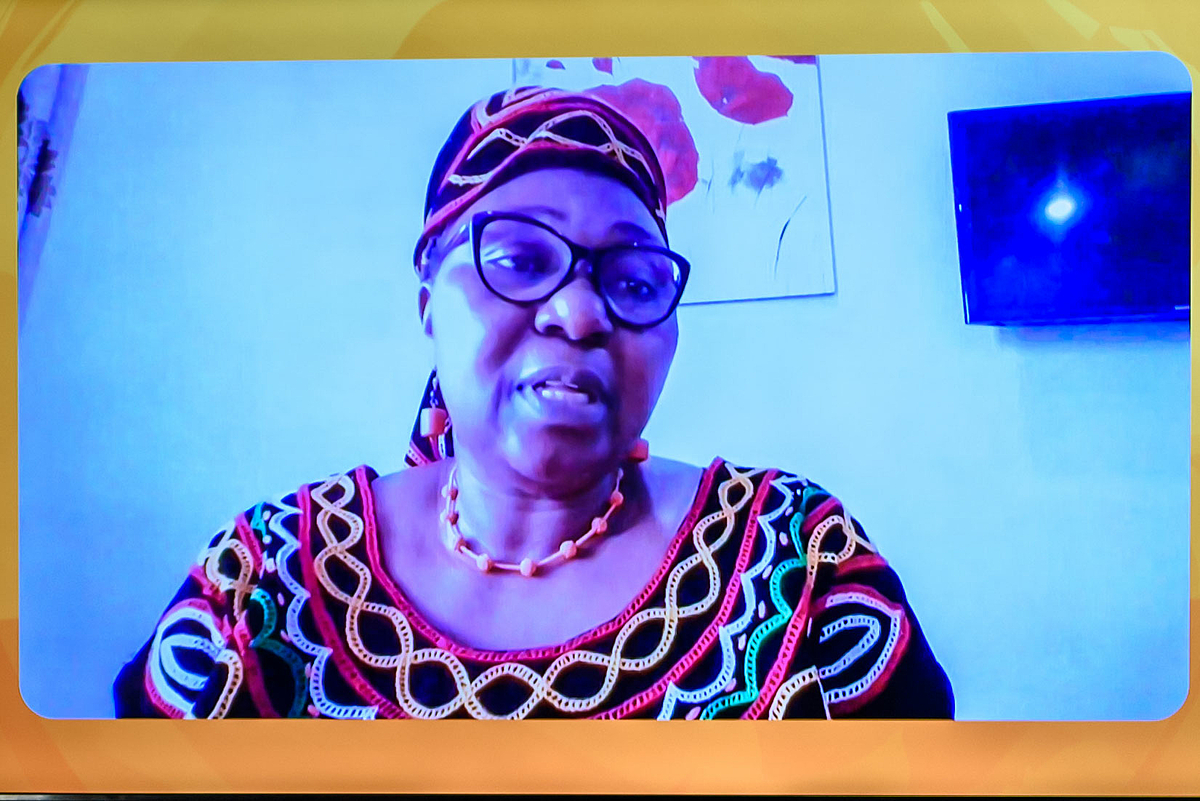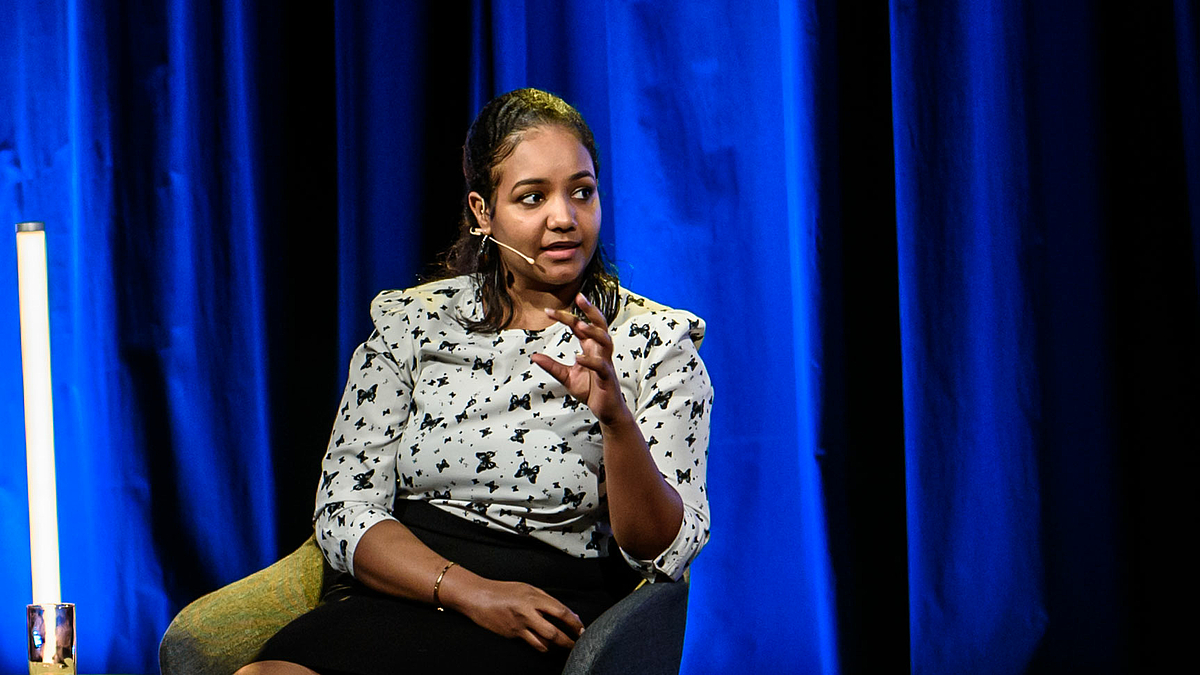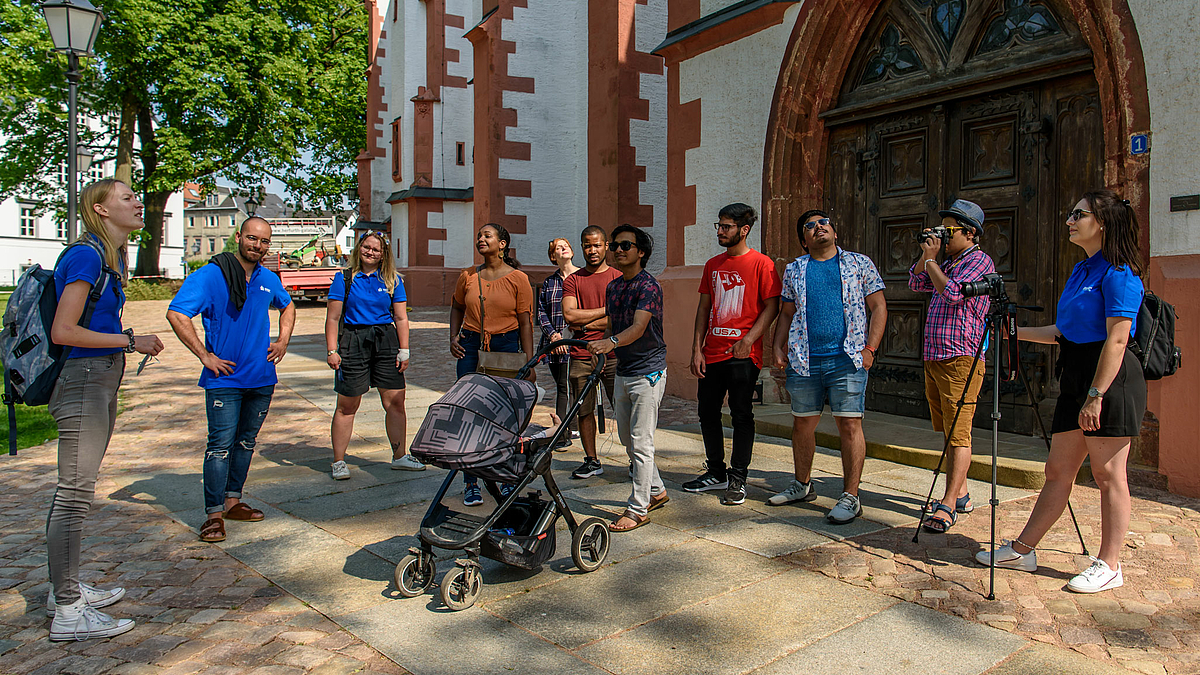Africa: Continent of the Future. Future of the continent.
Africa: Continent of the Future. Future of the continent.
This year's International Week at Mittweida University of Applied Sciences focused on Africa and cooperation with its neighbouring continent Europe.
Africa is the second fastest developing region in the world after China. But this average view of the continent's population and economic growth is only one side of the coin, the reverse side is marked by the fragility of many African countries. They are weakened by political instability, poverty, child labour, lack of education and illiteracy, food insecurity, high levels of stress, as well as violence, war and infectious diseases.
Africa and Europe are neighbours and partners, and this is also true in the Saxon university town of Mittweida, where the International Week of the Mittweida University of Applied Sciences took place from 15 to 17 June. "Strengthening the European-African Partnership: Challenges and Opportunities" was the motto of the digital conference with participants from 14 nations - mostly from Europe and Africa: teachers and researchers, representatives of international organisations such as the German Academic Exchange Service (DAAD) and, of course, international students - including some students from Cameroon who are currently working on modelling infectious diseases such as malaria or corona in the research group of mathematics professor Kristan Schneider at Mittweida University of Applied Sciences. Currently, 46 of 1400 international students at Mittweida are from Africa.
As neighbours and partners, the focus is on common challenges such as climate change, digital transformation and the promotion of sustainable development. And for the past year and a half, both continents have also been linked by the global pandemic: "Defeating Corona is only possible globally or not at all," said Dr Gerd Müller, Federal Minister for Economic Cooperation and Development, in his welcoming message at the opening of the conference on 15 June, urging, among other things, more solidarity and fairer globalisation.
In her welcome message, Claudia Graus, former member of the board of the organisation UNICEF, reported on a highly motivated and determined young generation in Africa. Basic education, especially for girls, is the most important development investment of all.
Joint work in science and educatio
The challenges mentioned are also challenges for science and joint research in both continents. This was reflected in the International Week conference programme of lectures, workshops and poster presentations. In addition to numerous contributions on research into infectious diseases, the programme dealt, for example, with the role of civil society organisations in regional integration processes in Africa as well as in strengthening cooperation within higher education between Europe and Africa.
Africa's Young Future - International Panel at „Dialog Kontrovers Extra“
"Africa is a young continent," said Federal Minister Müller in the morning. This "young" Africa was the subject of a „Dialog Kontrovers Extra“ on Tuesday evening, streamed live from the university's TV studio. In 2020, about half of Africa's population was younger than twenty, compared to about one fifth in Europe. The challenge for African states, but also for a mutually beneficial partnership, is to improve the prospects for younger generations of Africans and Europeans. These prospects include the economy and thus opportunities for work, the political system with robust democracies and opportunities for participation, especially for women, and opportunities for individual identity formation processes.
How can African countries succeed in improving the prospects for their youth? What can Europe contribute? And will both benefit? Dr Hedwig Ngwa, representing the Cameroonian Government High School, Great Soppo Buea, and the University of Buea, Dr Gabin Ananou, former ambassador of Togo to Germany, now German Aerospace Center Bonn, Dr Andreas Wrobel-Leipold, political scientist and professor of media management at Mittweida University of Applied Sciences, Nessma Adil Yousif, Sudanese doctoral student with Professor Kristan Schneider in the field of epidemiology, discussed this. PD Dr. Gunter Süß from the Institute for Competence, Communication & Languages at Mittweida University of Applied Sciences moderated.
The photo shows a young man with dark skin looking over his shoulder at the „Dialog Kontrovers Extra“. He is filming from the audience stand with his smartphone into the TV studio, where four people on the podium and one person on a screen in th (Kopie 4)
The panel agreed that the continent is still suffering from the effects of (European) colonisation, but they did not stop there: Rather, the focus was on the prospects and opportunities for European-African cooperation. It was not really about helping Africa, but about helping the different cultures of Africa to help themselves - not to impose ready-made solution plans, but to jointly tread the path to solutions. It is about making Africa independent in order to make a just future possible - and to hold the political leadership of the different countries responsible.
In the middle of Europe: Walk-through Central Saxony in Mittweida and Hainichen
The International Office team has been able to draw on broad support from many parts of the university in organising International Week. Among the supporters were the second semester students of the Global Communication in Business and Culture programme. In their Intercultural Teambuilding module, they examined their own cultural roots and drew comparisons to other cultures. The students used the sense of different cultures they had developed in this way to design and implement guided tours of the towns of Mittweida and Hainichen as well as the university as a group of four to six people - as videos and, during the International Week, also live on site for the guests present.
In doing so, the students do not only form teams as student groups. Their theoretical knowledge of team-building effects flowed in particular into the classroom tours, during which they also had the opportunity to consolidate their English language skills and gain intercultural experience with the international guests of Mittweida University of Applied Sciences. Almost incidentally, the project management skills acquired in lectures and seminars were successfully put to the test during the preparation and implementation. The photo shows a group of eleven young people in front of the side portal of the Protestant Town Church in Mittweida. Some are looking upwards. Four of them are wearing blue university shirts. They are the guides of the international group of students on their sightseeing tour of Mittweida.
Thus, after long months of almost exclusively digital offerings, International Week 2021 at the HSMW also became the first opportunity for international students in Mittweida to meet each other in person.
The panel discussion "Africa's Young Future" is available for viewing here.
